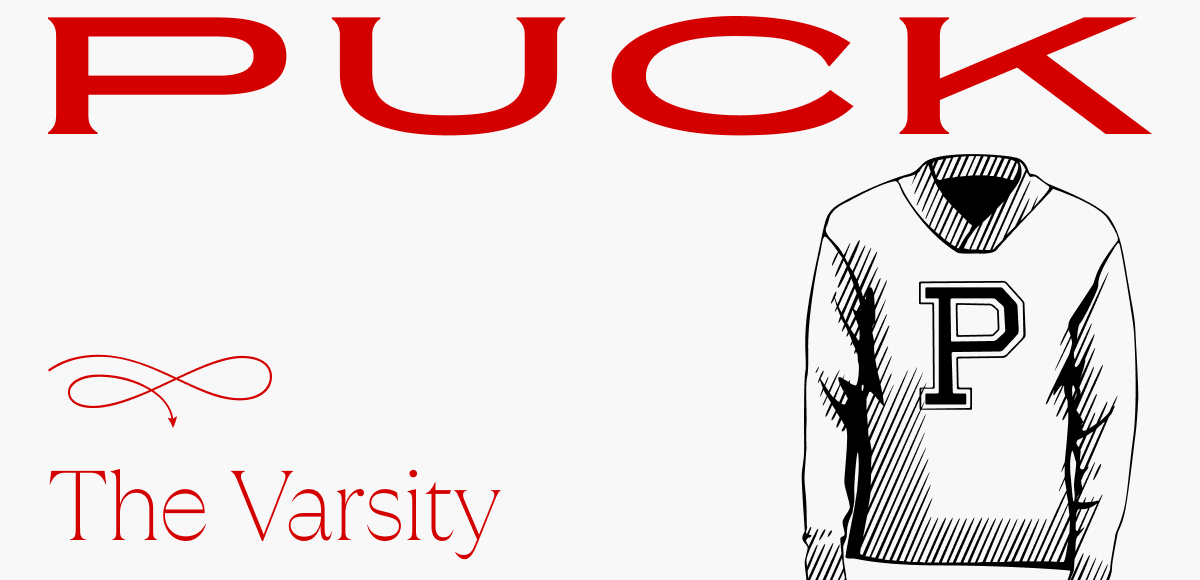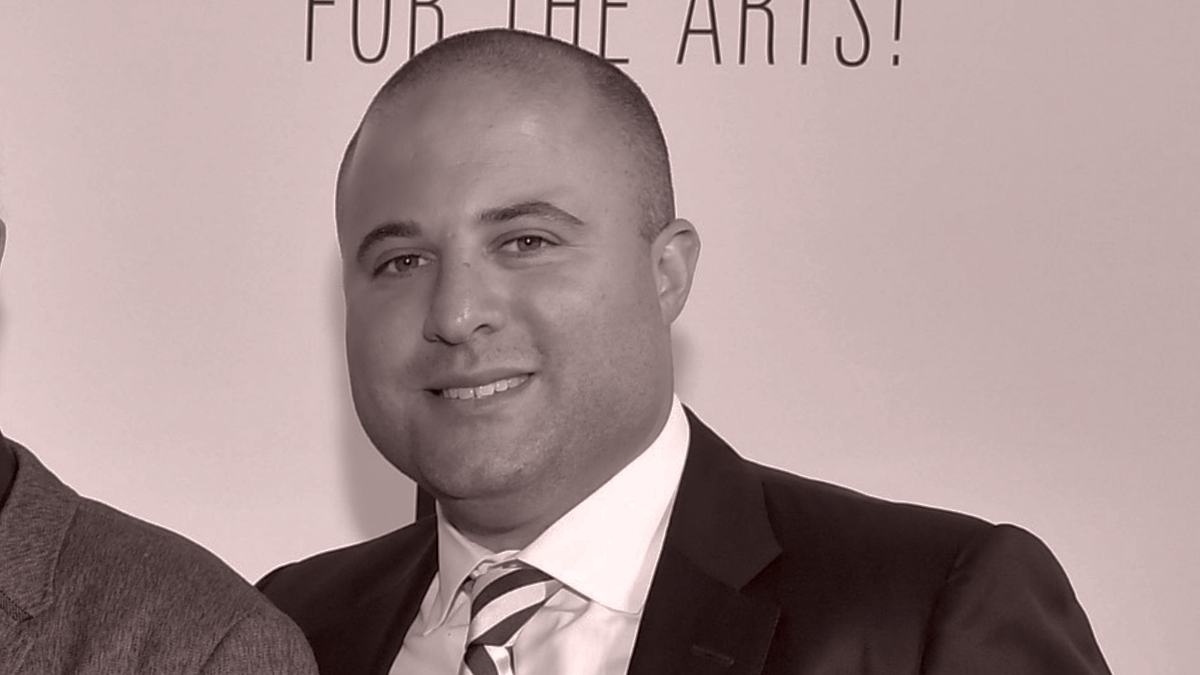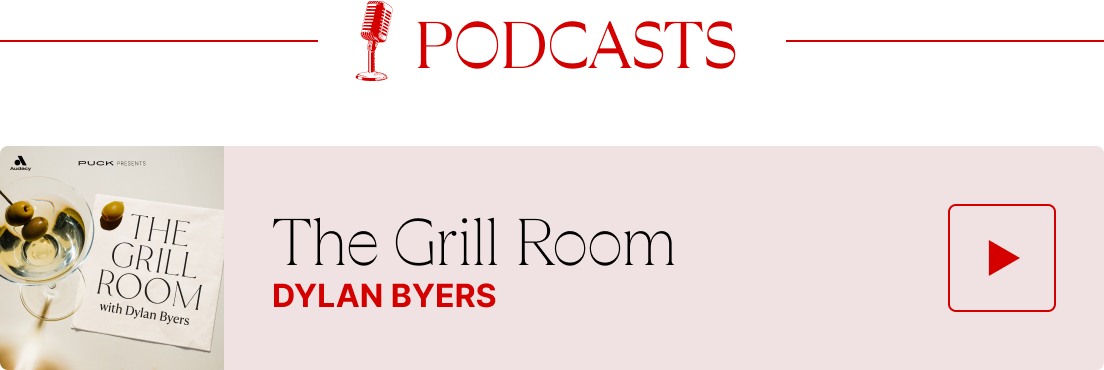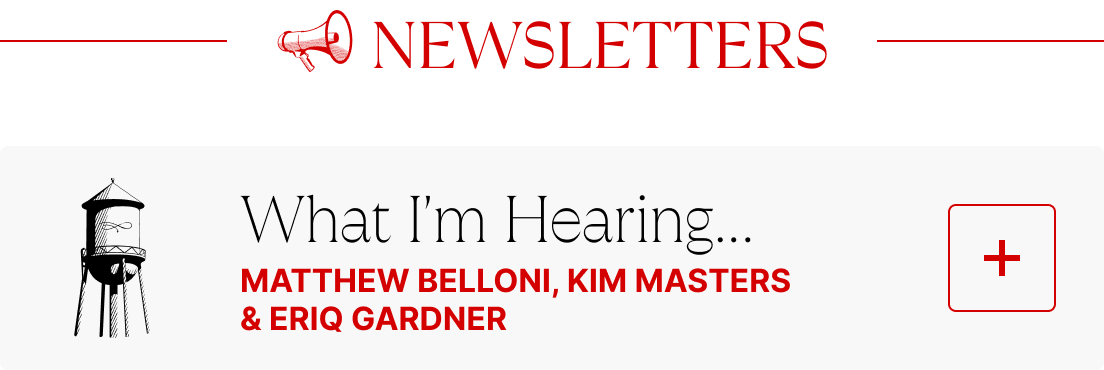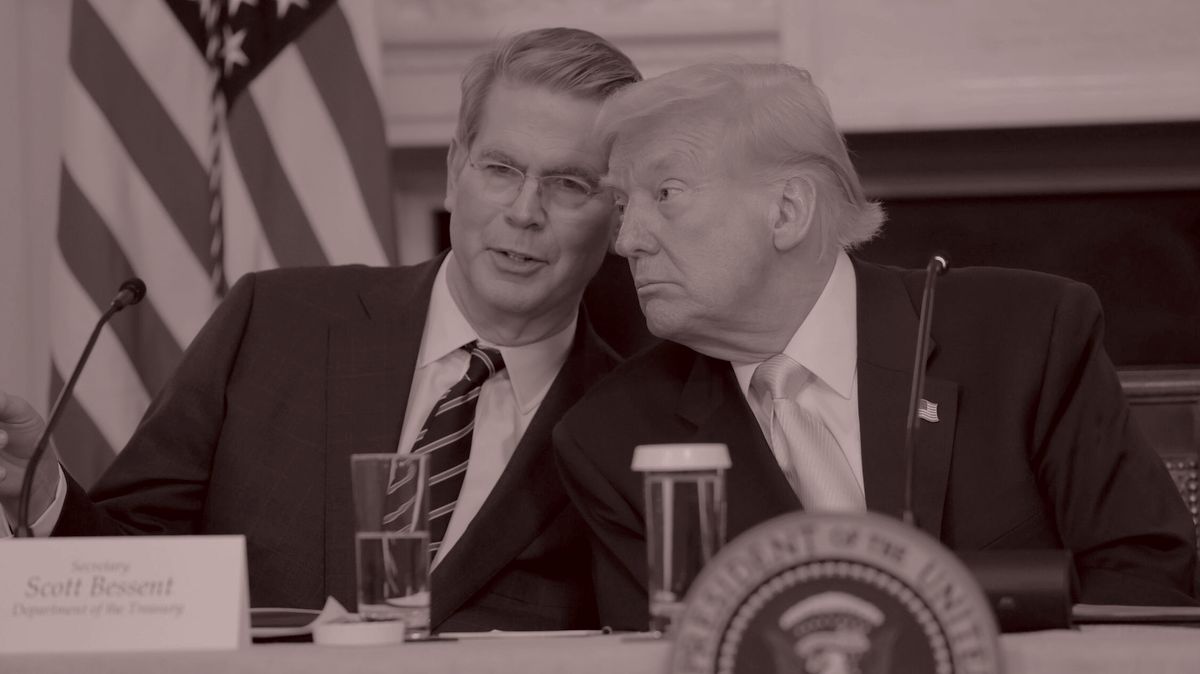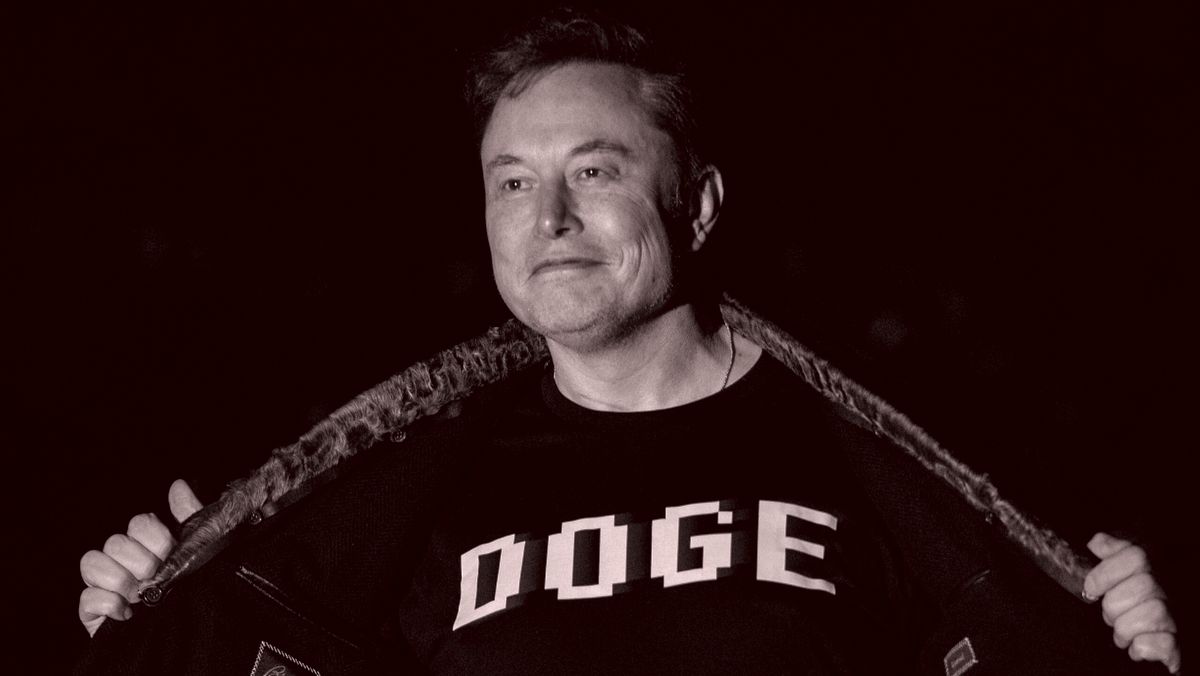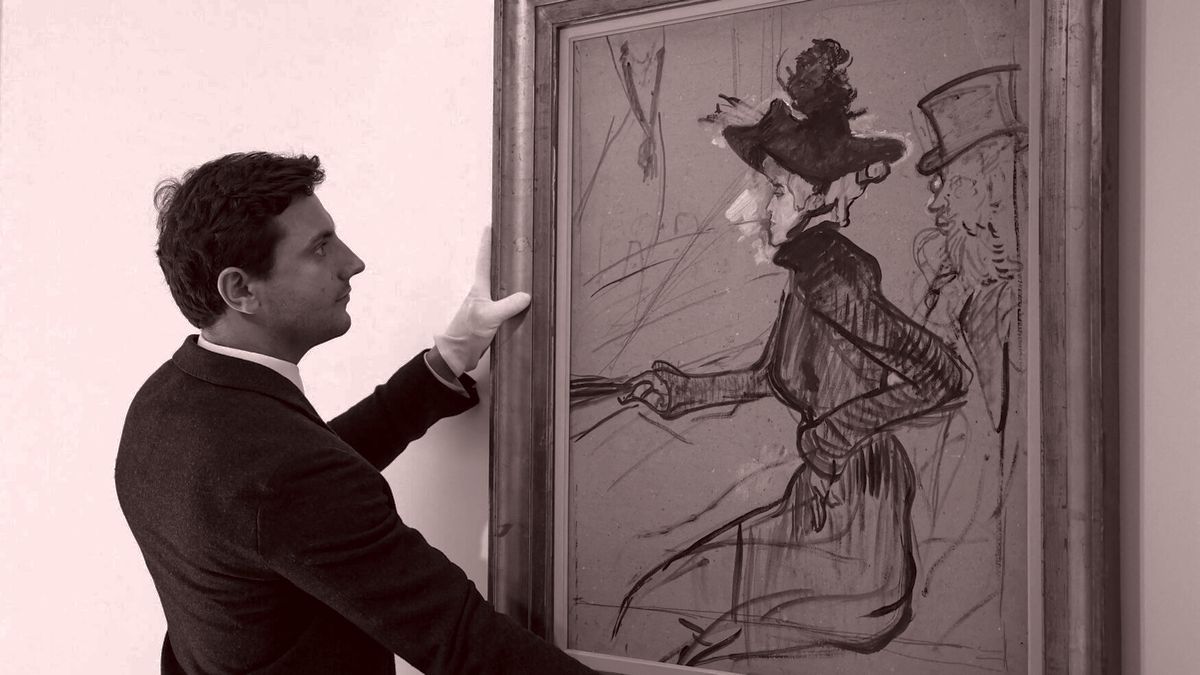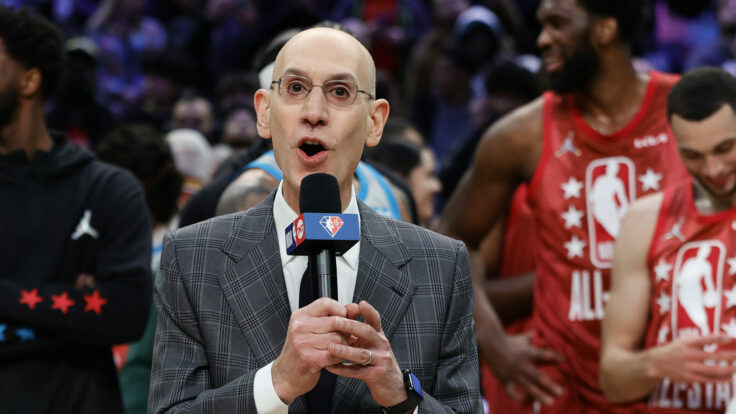Welcome back to The Varsity, the newly thrice-per-week private email on the
money, power, egos, and superegos that run the sports business.
I’m in San Francisco, prepping to interview San Francisco Giants C.E.O. Larry Baer and Fox Sports S.V.P. of strategy and analytics Ben Valenta tomorrow night. Puck is hosting an exclusive event with Tishman Speyer, and you’ll be able to listen to the conversation this weekend on the Varsity podcast. If you’re in town and interested in attending, and you’re a Puck subscriber,
email Eric Van Gelder at Eric@puck.news to RSVP. Suggest new Marchand material and there’s a status-defining Puck hat in your future.
🚨🚨 Pod alert: Sara Fischer, the great Axios media reporter, returns to the Varsity podcast on Wednesday for a candid catch-up about the biggest stories impacting sports media. Also, make sure you
listen to Sunday’s pod with Jerry Silbowitz, UTA’s co-head of sports media. He breaks down why broadcast talent is increasingly moving to YouTube and TikTok, and what ESPN and others are doing in response. (See more on this below.)
🚨🚨🚨🚨 Big news: I have been bombarded with praise for Julia Alexander’s new
Tuesday night Inner Circle edition of The Varsity. My favorite came from a subscriber who described Julia as “Puck’s Peter Schrager hire” with analytical chops that “remind me of Steve Kornacki.” Indeed, Julia drove a metric ton of upgrades. I suggest you follow your colleagues by upgrading in advance of her forthcoming eye-opener on the true value of the F1 rights deal. Remember, Julia’s work is available only to Inner Circle subscribers, so
click here to upgrade.
Let’s get to it…
|
- UFC-ESPN kumbaya: Just one month ago, following ESPN+’s gaffe-filled stream of a pay-per-view UFC event, relations between the league and its broadcast partner coarsened, right as the exclusive window to negotiate a new rights deal was set to expire. But the mood was decidedly chummier after Saturday night’s MAGA-infused pay-per-view event in Miami, where Donald Trump rolled in with his entourage (Elon, Bobby,
Tulsi, Kash, Marco, etcetera). Afterward, sources at both UFC and ESPN said that their relationship was in a much better place. Last week, Jimmy Pitaro and Mark Shapiro, in his capacity as president of TKO Group, met to discuss potential future packages. I’m told that the two parties are motivated to stay in business together beyond December, when the current deal concludes. But that, of course, depends on how
much interest UFC attracts from other mediacos.
ESPN’s exclusive negotiating window with UFC officially ends tomorrow night at midnight. Once the league takes some meetings around town, it will get a better sense of how many packages it could create. On Saturday night, C.E.O. Dana White suggested that UFC could have as many as three separate deals. “There could be a time when we end up on several different networks, like all other sports do,” he said during a press
conference. It’s too early to gauge how much interest is out there, but UFC would never let ESPN’s exclusive window expire if its executives weren’t confident there would be multiple other suitors. Amazon and Netflix, for two, are expected to take meetings almost right away.
- The R.S.N. bloodbath: With the regular season wrapping over the weekend, NBA local game ratings are down double digits—13 percent on average—for 25 of the NBA’s 30 teams. (I
haven’t been able to get my hands on the local numbers for the Pelicans, Mavs, Grizzlies, and Hornets yet, and the Raptors, of course, play in Canada.) As Varsity subscribers know well by now, this downward trend is inextricably tied to accelerated cord-cutting, the availability of streamed games, and R.S.N.s getting cliff path-ed to less popular tiers.
There were some notable bright spots that impacted the averages. Viewership for the Cleveland Cavaliers, who clinched the top
seed in the Eastern Conference, increased 60 percent on FanDuel Sports Ohio. The Houston Rockets, who landed the two seed in the Western Conference, enjoyed a 45 percent boost on Space City. Despite a lousy season and a star-less team, the Portland Trail Blazers’ viewership somehow doubled year over year on Sinclair’s over-the-air stations—perhaps a sign that there’s really nothing else to watch in Oregon after Ducks football ends.
Not surprisingly, the Chicago Bulls
experienced the league’s biggest audience drop-off, percentage-wise. Its games on Chicago Sports Network, which is not carried by Comcast, were down 62 percent. Other big dropoffs included the Hawks on FanDuel Sports South and Southeast (down 53 percent), and Heat games on FanDuel Sports Sun (down 52 percent). Interestingly, two teams that left R.S.N.s for local broadcast saw significant dropoffs: Jazz games on Sinclair are down 44 percent, and Suns games on Gray TV are down 23
percent.
- Randy Levine’s R.S.N. playbook: For the past year, Comcast has ruthlessly—and effectively—pursued a regional sports network strategy that pushes the high-priced local sports channels to a much less popular digital tier. As Varsity readers well know, the R.S.N.s hate this cliff path strategy, but there was nothing they could do: They either had to accept the demotion or go dark.
Until two weeks ago, the
cliff path was working out pretty well for Comcast. But then Yankees president and YES Network chairman Randy Levine, who has ties to the Trump administration, pressured Comcast to extend the channel through the end of the baseball season on the expanded basic tier. Chicago Sports Network—another R.S.N. embroiled in a Comcast contretemps—appeared to be taking notes. Last week in Chicago, F.C.C. Chairman Brendan Carr met with Bulls and White Sox
owner Jerry Reinsdorf, who also owns part of Chicago Sports Network. While Carr kept mum about the Chicago situation, he’s the one who pushed Comcast to prolong its deal with YES. Carr’s post on X about his meeting with Reinsdorf seemed to foreshadow a similar outcome.
- Disrupting the WNBA: You’re
probably reading this in the middle of the WNBA Draft, where UConn’s Paige Bueckers will unquestionably become the first pick—a fitting capstone to a remarkable collegiate career. But I’m more interested in the three-year deal that Bueckers signed with Unrivaled, the three-on-three league, which will pay her more in one 10-week season than she’ll earn across her entire four-year WNBA rookie deal.
How will the advent of such Unrivaled superdeals impact the WNBA’s labor
negotiations? Bueckers can afford to hold out as long as she wants, but what about the rank-and-file WNBA players who don’t have that kind of leverage? As with all labor deals, there’s potential for a rift between the haves and the have-nots. And the Unrivaled deals may make that rift difficult for the WNBPA to mend. Alas, this may just be the price of success…
- Masters publicity: Thanks to everyone (and there were a bunch of you) who
texted me the image of Comcast’s Brian Roberts standing directly behind Rory McIlroy and Scottie Scheffler during the Masters’ green jacket ceremony. Indeed, while the event was aired on rival CBS, Roberts is a member of Augusta National.
|
And now on to the main event…
|
|
|
UTA’s Jerry Silbowitz candidly breaks down the evolving playbook for building
lucrative, long-term, non-leaky sports media careers.
|
|
|
The media business, above all else, is a copycat game. So when ESPN signed lucrative and
loophole-laden deals with Pat McAfee and Stephen A. Smith, virtually every agent received inbound from their roster of clients looking for similar concessions. Perhaps they weren’t agitating for Stephen A.’s $20 million per annum, but they wanted some of the same flexibility to create content on other platforms. On a recent episode of The Varsity, UTA’s co-head of sports media, Jerry Silbowitz, walked me through the advice he gives to
his clients, including Gronk and Rich Eisen. (As usual, this conversation has been lightly edited for length and clarity.)
|
John Ourand: Let’s start with on-air talent. If you see a lot of
star potential in someone, what’s your advice? Traditional television? A newer platform?
Jerry Silbowitz: From a player/analyst perspective, there’s always a desire for a certain amount of freshness when you step off the field or the court. But it’s different. Ten or 15 years ago, it would be all about star power—hall of famers and interesting personalities who would choose a pregame show or a studio. Now, obviously, those aren’t the
only options. We look at if someone wants to also have their own digital show, and that’s been a significant change.
We just signed former Washington Wizard Gilbert Arenas. His presence on his daily YouTube streaming show is massive, with around a million subs on his channel. He easily will do 20,000 [concurrent viewers on his livestreams], if not more, every day. He built this massive studio and infrastructure at his house. He has a business.
Do we also explore
some work with one of the rights holders, or do we explore something with a traditional corporate media entity that can be additive to the portfolio of what he’s doing? It doesn’t have to be one or the other. If anything, we hope that it’s a mix, because what the digital, or your owned and operated I.P., does is give you a great deal of flexibility to own your audience and control where they are, while also going on a platform and engaging with another audience. And if for some reason some
things don’t work out, you still have your audience nice and organized, and ready to move on to the next thing.
Back in the day, there was an obvious way for this to go: Everyone wanted a TV show because that’s where the money was, and where people saw success, even if they had big digital audiences. Do people still view it that way?
Not necessarily. This all goes back to, Who’s the talent? What are their goals?
Pat McAfee is not a client, but he’s an obvious example. His show started on YouTube. It’s very important to him, but he ended up adding a cable channel with extreme reach, and an S.V.O.D. service with reach. And it’s on TikTok. He clearly opted for everything, and is going for the largest reach possible.
The idea of owning your I.P. and licensing it to someone—let alone having it go live on multiple platforms at the same time other than the traditional radio/TV
simulcast—has never been an option. But we’re at this moment where it can be an option for the right show that can move the needle from the talent perspective. It just depends.
Look at Stephen A. Smith. He has one of the most successful shows in the sports media cable landscape. But with a great deal of ambition and fire, he built his show. I don’t know him, but I’m assuming the show he does is [the] show that he’s always wanted to do at night.
To use another example, Rich
Eisen is a longtime client. Part of his daily show came from the idea that he wanted to be a late night talk show host. There are only a handful of those jobs, and they turn over once every two or three decades. Even in the current landscape, who knows what the impact is? But Rich’s show evolved into a cast, a radio show, a TV show with a podcast version that interviews both the top talent in sports and Hollywood and other interesting people. DirecTV got out in 2019 and gave him his show to
keep. He kept going and controlled and built the show. Ask him what platform is important to him: It’s all of them. It streams live on Roku’s sports channel. He also has his own FAST channel. He has a presence on YouTube, Instagram, TikTok. Those are meaningful ways for the audience to engage with your content in shorter or medium form. If people just want to engage with the short form, that’s monetized and is making an impact. Right now, all of these platforms are
important.
McAfee, Stephen A., Eisen. Is this a new template?
It’s inspiring for those talents who can move needles. They’re expanding their capacity, from both a content-output perspective, and a revenue one. Stephen A. is doing his show in addition to the already nice business he has going with The Walt Disney Co. That’s I.P. that he owns and controls. Gilbert Arenas saw it the same way. You’re at a point where, if you can move
the needle, and have access to resources and technology, all this content is cheaper to make, and much more accessible. They can have their little company, and they can have a small culture where they can make something for a dollar, sell it for $3, and you actually made $2—versus sometimes things happen, and there’s corporate math that we understand, but doesn’t always look like basic math. People do look at the McAfee and Stephen A. deals, and they aspire to it. Some can achieve it. But it
doesn’t have to be the only path to winning.
|
On CBS’s Masters production: “If you want to teach television, just show the CBS Masters
broadcast from the time of the winning putt to the end of the Butler Cabin interview. Absolute perfection in every way. I don’t know or care how the Sports Emmys work—heck, even I have one—but I promise you, there will not be a better stretch of television done in our industry this year.” —An executive from a rival network
On the NHL commissioner: “Listening to your
podcast with Gary Bettman that featured his thoughtful answers, but more importantly, his dog barking in the background. I’m sure that could decrease the boos he continues to hear in public-facing moments with a microphone. As the longest-tenured commissioner in the Big Four, he’s had a remarkable career and I hope that when he decides to hang up his skates,
he’s celebrated by the players and fans for the enterprise he’s created.” —A Varsity subscriber
|
|
|
Finally, a media podcast about what’s actually happening in the media—not the oversanitized,
legal-and-standards-approved version you read online. Join Dylan Byers, Puck’s veteran media reporter, as he sits down with TV personalities, moguls, pundits, and industry executives for raw, honest, sometimes salacious conversations about the business of media and its biggest egos. New episodes publish every Tuesday and Friday.
|
|
|
An essential, insider-friendly Hollywood tip sheet from Matthew Belloni, who spent 14 years in the trenches at
The Hollywood Reporter and five before that practicing entertainment law. What I’m Hearing also features veteran Hollywood journalist Kim Masters, as well as a special companion email from Eriq Gardner, focused on entertainment law, and weekly box office analysis from Scott Mendelson.
|
|
|
Need help? Review our FAQ page or contact us for assistance. For brand partnerships, email ads@puck.news.
You received this email because you signed up to receive emails from Puck, or as part of your Puck account associated with . To stop receiving this newsletter and/or manage all your email preferences, click here.
|
Puck is published by Heat Media LLC. 107 Greenwich St, New York, NY 10006
|
|
|
|
